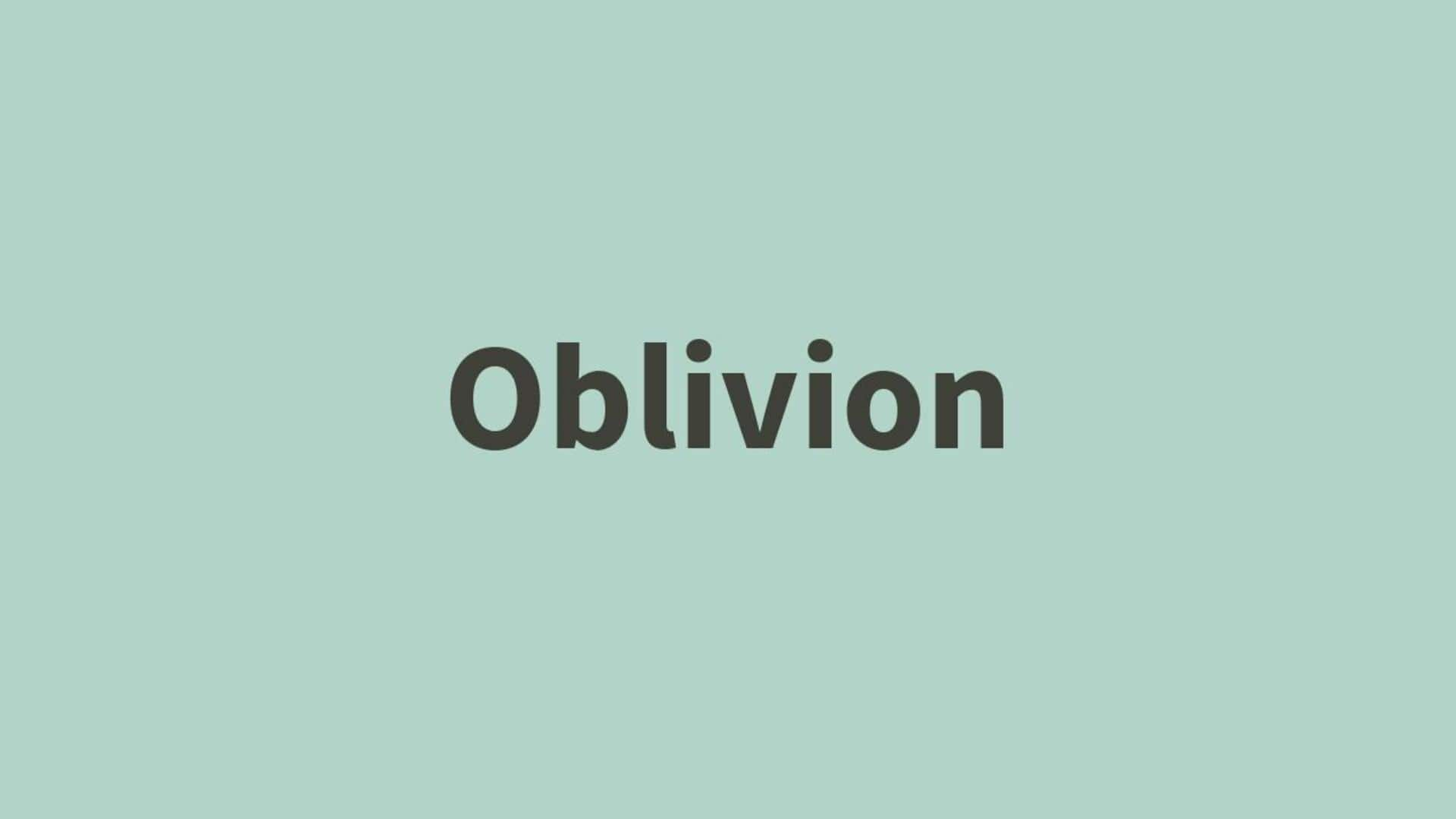
Word of the Day: Oblivion
What's the story
"Oblivion" is a noun that refers to the state of being forgotten, unaware, or disregarded. It can also describe a state of unconsciousness or a complete lack of awareness or memory. In a broader sense, "oblivion" is used to signify a condition where something or someone is lost to time or ignored by society, often fading into obscurity.
Origin
Origin of the word
The word "oblivion" comes from the Latin oblivio, meaning "forgetfulness" or "the state of being forgotten." The root oblivisci means "to forget." Over time, the term evolved to describe not only forgetfulness but also the idea of being completely overlooked or out of memory, as in something lost to history or unnoticed in the present.
Synonyms
Synonyms for 'oblivion'
Common synonyms for "oblivion" include forgetfulness, obscurity, neglect, and amnesia. These words highlight various shades of being forgotten or ignored. While "oblivion" suggests a final and irreversible state, obscurity points to something lesser-known or temporary, and neglect refers to conscious disregard or failure to care for something.
Usage
Sentence usage
Here's how "oblivion" can be used in sentences: "The once-popular band faded into 'oblivion,' with no one remembering their hits years later". "After the scandal, the actor's career was left in 'oblivion,' with few willing to work with him." "The ancient ruins stood in 'oblivion,' hidden in the overgrowth of the jungle and forgotten by time."
Literature
Why use the word
Using "oblivion" can help express the idea of something being forgotten, lost, or disregarded. It carries a weighty, almost poetic tone, often used in literature or discussions of memory, history, and the passage of time. It is particularly useful when describing something that has completely faded from existence or awareness.